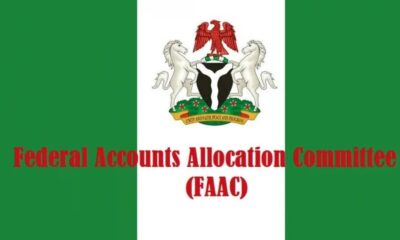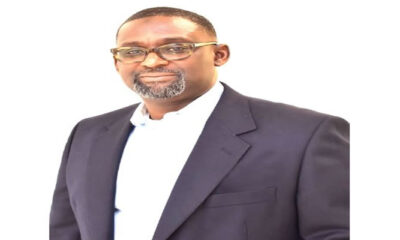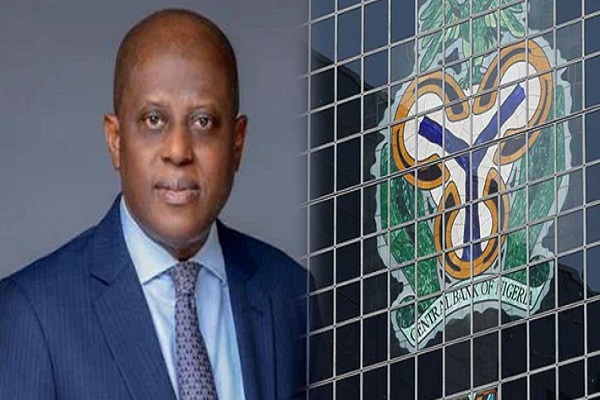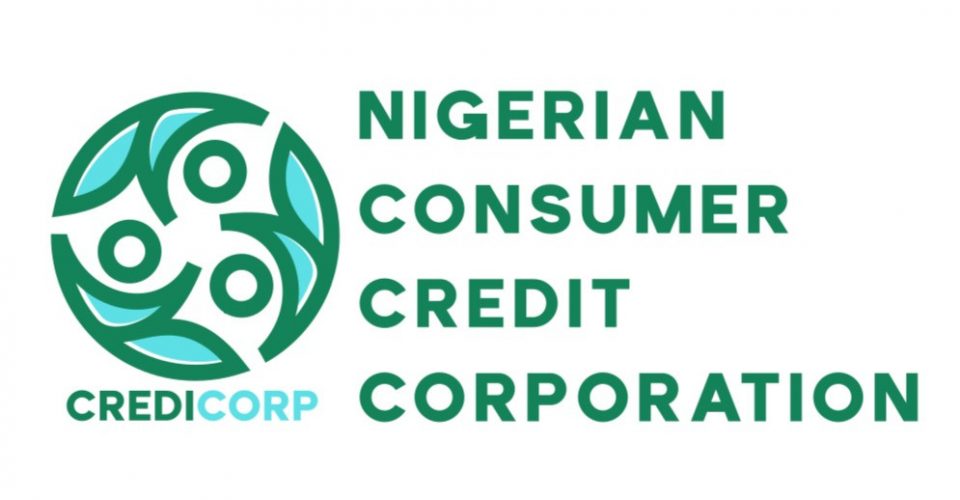Business
Dangote reduces petrol price to N860/litre
Published
2 months agoon
By
Ekwutos Blog
Dangote Petroleum Refinery on Wednesday, announced a reduction in the ex-depot (gantry) price of Premium Motor Spirit, PMS, commonly referred to as petrol, by N65.00.
This means the price will drop from N890 to N825 per litre, effective Thursday, February 27, 2025.
According to Dangote, this adjustment is designed to provide essential relief to Nigerians ahead of the Ramadan season.
With the latest reduction, the management of the refinery stated that Nigerians will be able to purchase Dangote petrol at the following prices in all partner retail outlets:
“For MRS Holdings stations, it will sell for N860 per litre in Lagos, N870 per litre in the South-West, N880 per litre in the North, and N890 per litre in the South-South and South-East, respectively,” a statement read.
This is the second PMS price reduction in February 2025, following a previous N60.00 decrease earlier in the month.
In December 2024, the refinery reduced the price of PMS by N70.50, from N970 to N899.50 per litre.
You may like


When the Time Comes, We’ll Handle Wike… Azikwe used to say Surulere” — Ex-Governor Ada-George Drops Bombshell, Channels Azikiwe’s Spirit Amid Rivers Crisis


BREAKING: 8 Killed in Boko Haram IED Attack Along Maiduguri-Damboa Road


Isoko APC leaders decry marginalisation, seek commission’s MD


Sustaining monetary, fiscal policies for bank recapitalisation


FAAC shares N1.58tr to FG, states, LGAs in March


Why Nigeria’s maritime cadets still struggle with global certification – NSML MD
Business
Sustaining monetary, fiscal policies for bank recapitalisation
Published
4 hours agoon
April 17, 2025By
Ekwutos Blog
The emergence of stronger and bigger banks is one of the crucial benefits expected from the ongoing Central Bank of Nigeria (CBN)-led recapitalisation of banks. The apex bank believes that achieving sustainable economic growth requires strong support from the financial system. The financial sector regulator is, therefore, keen on aligning monetary and fiscal policies to achieve government’s vision of growth for businesses and $1 trillion economy size for the country, writes Assistant Editor, COLLINS NWEZE.
Aligning fiscal and monetary policy objectives comes with great benefits to the economy. The Central Bank of Nigeria (CBN) is at the centre of achieving fiscal and monetary policies collaboration and supporting the government’s plan for $1 trillion economy size.
For a government that wants to grow its economy to $1 trillion mark, the support of the financial services sector led by the Central Bank of Nigeria (CBN) Governor, Olayemi Cardoso is crucial.
The CBN boss had explained that bank recapitalisation ensures that lenders are well-capitalised, enabling them to take on greater risks, particularly in underserved markets. With stronger capital bases, banks can provide more loans and financial products to Micro Small and Medium Enterprises (MSMEs), rural communities and other vulnerable segments that have previously struggled to access formal financial services.
The CBN had, on March 28, 2024 announced a two-year bank recapitalisation exercise which commenced on April 1, 2024 and is expected to end on March 31, 2026.
The recapitalisation plan requires minimum capital of N500 billion, N200 billion and N50 billion for commercial banks with international, national and regional licenses respectively.
Others included merchant banks N50 billion; non-interest banks with national license N20 billion and non-interest banks with regional license will now have N10 billion minimum capital. The 24-month timeline for compliance ends on March 31, 2026.
Cardoso said the recapitalisation policy not only strengthens financial stability but also serves as a catalyst for inclusive growth.
“By enabling banks to extend more credit to MSMEs, we enhance job creation and productivity. Furthermore, with increased capital, banks can invest in technology and innovation, crucial for driving digital financial services such as mobile money and agent banking. These technologies are important to breaking down geographic and economic barriers, bringing financial services to even the most remote areas,” he stated.
He said Nigeria has what it takes to deepen financial inclusion and support the growth of business and economy. He said the recapitalisation exercise will also support the government’s efforts to achieve a $1 trillion economy.
The CBN further underscored the importance of banking recapitalisation as a major catalyst for the achievement of the $1 trillion economy agenda of the government.
Banking sector remains robust
Cardoso explained that the banking sector remains robust, with key indicators reflecting a resilient system.
“The non-performing loan ratio remains within the prudential benchmark of five per cent, showcasing strong credit risk management. The banking sector liquidity ratio comfortably exceeds the regulatory floor of 30 per cent, a level which ensures banks are maintaining adequate cash flow to meet the needs of customers and their operations. The recent stress test conducted also reaffirmed the continued strength of our banking system,” he said.
“I am pleased to note that a significant number of banks have raised the required capital through rights issues and public offerings well ahead of the 2026 deadline. I believe that the banking sector is in a strong position to support Nigeria’s economic recovery by enabling access to credit for MSMES and supporting investment in critical sectors of our economy,” he said.
The CBN Deputy Governor, Corporate Services, Ms. Emem Usoro, said the journey to a $1 trillion economy requires structured planning, clearly defined policies, unwavering implementation, and an inclusive approach that aligns public and private sector interests.
At the just-concluded seminar organised by the CBN for business editors and financial correspondents in Abuja, Usoro said that one of the key components of the $1 trillion ambition is the recapitalisation of Nigerian banks.
She noted that banks must be sufficiently capitalised to meet the financial demands of a larger and more dynamic economy.
“As we work towards building a $1 trillion dollar economy, we must consider the recapitalisation of our banks to be able to fund, finance and power the economy, and to favourably compete globally,” Usoro said.
She further called for a collective effort from all stakeholders, adding that the financial system must be prepared to play its role in powering development.
“We should particularly pay attention to bank recapitalisation to ensure that our banks are strong, resilient and stable enough to carry out financial intermediation, and the much-needed financing of development projects and programmes,” Usoro said.
The Group Managing Director of United Bank for Africa (UBA), Mr. Oliver Alawuba described the ongoing CBN bank recapitalisation policy as both timely and essential in positioning the financial system to meet the demands of a growing and globally competitive economy.
According to Alawuba, the initiative is expected to boost the resilience of the banking sector by strengthening its capacity to withstand economic shocks such as inflation, currency volatility and global geopolitical disruptions. He noted that the policy will also place Nigerian banks on a stronger footing to finance the country’s long-term economic transformation, including funding of large-scale infrastructure and industrial projects.
Alawuba further stressed that the recapitalisation policy goes beyond regulatory compliance. It is a forward-looking strategy aimed at equipping Nigerian banks to operate at the scale and sophistication required by a trillion-dollar economy. He said the move would enhance the sector’s ability to support traditional economic drivers such as oil and gas, agriculture and manufacturing, as well as emerging sectors such as fintech, green energy and infrastructure development.
“Nigerian banks need adequate capital buffers to meet the evolving demands of these sectors. Without this, the industry cannot effectively rise to the challenge,” he said.
Alawuba further pointed out the sharp contrast between Nigerian banks and their counterparts in more advanced economies, where bank assets typically range between 70 and 150 per cent of Gross Domestic Product (GDP). In Nigeria, bank assets accounted for just 11.97 per cent of GDP as of 2024, a gap he said must be addressed if the country’s financial system is to align with international standards.
He commended the CBN’s recent directive mandating a significant increase in minimum capital thresholds, describing it as recognition of the urgent need for stronger financial institutions capable of delivering on national priorities such as infrastructure expansion, digital transformation, inclusive financial services and economic diversification.
Alawuba concluded that a robust, well-capitalised banking sector is critical for Nigeria’s aspiration to become a one trillion-dollar economy, and the recapitalisation drive is a forward-looking step to achieve that goal.
According to the Director of the Banking Supervision Department at the CBN, Olubuka Akinwunmi provided insights into the state of the banking sector by stating that banks have so far remained within the prudential thresholds stipulated by the regulator, including benchmarks for capital adequacy ratio and non-performing loans.
“Currently, all our banks are still within the prudential thresholds that were set. And they are actively pursuing various recapitalisation efforts,” Akinwunmi said.
He said priority sectors such as agriculture, infrastructure and manufacturing are receiving attention from both the government and financial institutions, as they are crucial to achieving a trillion-dollar economy.
“This year’s national budget reflects a clear emphasis on critical sectors such as health, education, infrastructure and agriculture. Banks are taking cues from these priorities, recognising them as viable areas for business expansion,” Akinwunmi said.
On how many internationally-active banks had met the new N500 billion capital requirement, he noted that substantial progress has already been made.
“We are halfway through the journey in terms of timeline, and in terms of capital already raised; we are also halfway through. That is a positive signal,” he said.
He added that the decision to start the recapitalisation process early has helped insulate the financial system from emerging global and domestic shocks.
“The emerging global economic shifts and pressures were not lost on the management of the CBN. We started early. If we had waited till now, the challenges would have been greater. But we acted in time,” he stated.
Dr Akinwunmi expressed his confidence that the recapitalisation requirements will be met, stressing that existing shareholders’ funds continue to serve as a buffer. However, the CBN deliberately opted for fresh capital inflows, particularly from foreign investors who have shown renewed confidence in Nigeria’s financial system.
“International perception of Nigeria’s banking sector is improving. The reforms over the past year, especially around the foreign exchange regime and improved transparency regarding reserves, have improved investors’ confidence,” he said.
He cited recent disclosures on Nigeria’s net reserves and improvements in regulatory credibility as key factors that are reshaping the outlook for foreign direct investment in the banking sector.
On the Loan to Deposit Ratio (LDR), Akinwunmi explained that the current 50 per cent benchmark does not reflect a reluctance to lend but rather a contextual response to inflation and other macroeconomic challenges.
“As the macro-economic environment stabilises, banks will naturally increase lending. It’s a cautious approach to ensure that lending supports sustainable growth,” he said.
He also touched on the Cash Reserve Ratio (CRR), stating that there has been marked improvement in transparency. Banks now have a clearer understanding of CRR computations, unlike in the past, which enhances predictability and compliance.
On Small and Medium Enterprises (SME) funding, he confirmed that banks have continued to make provisions, but the CBN remains actively engaged to ensure proper disbursement and sectorial targeting. Supervisory oversight, he explained, is being deployed to verify compliance and effectiveness of disbursed funds.
On incentives, he said the most powerful incentive for banks lay in the opportunities provided by a growing economy.
“A stronger bank can take on big-ticket businesses, including infrastructure financing. The current reforms, such as the infrastructure concession plans, present viable business opportunities for well-capitalised banks,” Akinwunmi said.
The capital verification process, according to him, is thorough and designed to ensure that only legitimate, unborrowed funds are used for recapitalisation. An industry-wide tracking mechanism has been established to streamline verification across institutions and enhance collaboration.
“Our examiners follow each capital trail meticulously, moving from one bank to another as necessary. Even if it’s not your bank under verification at that moment, we expect full cooperation to trace the sources of capital,” he said.
On the broader question of resilience to global shocks, he maintained that Nigerian banks are being positioned to remain attractive to investors and capable of withstanding external disruptions.
“CBN is monitoring developments closely and adjusting where necessary. The recapitalisation process is not just about compliance — it’s about long-term stability, competitiveness and economic transformation,” he said.
Business
Dangote Refinery has once more reduced the prices of its fuel, lowering the ex-depot rate to N835 per liter.
Published
12 hours agoon
April 16, 2025By
Ekwutos Blog
Dangote Refinery has indeed reduced the price of fuel to ₦835 per liter, marking a ₦30 decrease from the previous price of ₦865 per liter, which translates to a 3.5% reduction.
This latest adjustment follows a recent decline in global crude oil prices, which have dropped to $64 per barrel from over $70 per barrel in recent weeks.
Key Details:
– *New Price:* ₦835 per liter
– *Previous Price:* ₦865 per liter
– *Reduction:* ₦30 (3.5% decrease)
– *Global Crude Oil Price:* $64 per barrel (down from $70 per barrel)
Some Nigerians are welcoming the price reduction, while others are expressing skepticism, noting that transport costs haven’t decreased accordingly.
There’s also a call for further price reductions, considering the global crude oil price drop
Business
Nigerians score CrediCorp, power, agric ministries low
Published
4 days agoon
April 13, 2025By
Ekwutos Blog
Nigerians have rated the Ministries of Power and Agriculture and Food Security low on the Presidency’s Central Results Delivery Coordination Unit tracker, Sunday Ekwutos reports.
Data obtained by our correspondent from the tracker also revealed that the Ministry of Interior topped the chart, buoyed by multiple five-star reviews applauding improvements in passport and visa issuance.
On April 8, 2024, the Special Adviser to the President on Policy and Coordination and head of the CDCU, Hadiza Bala-Usma, inaugurated the Citizens’ Delivery Tracker.
Bala-Usman said the tracker would provide a “strong feedback loop” between citizens and the government and hold ministers and heads of government agencies accountable based on key deliverables.
“The Citizens Delivery Tracker App…will be constantly modified to enhance ease of use and maintain a strong feedback loop between citizens and their government,” she explained at the Go-Live event of the CDT in Abuja.
According to the latest CDCU data covering the last six months, citizens submitted 217 ratings overall, with an average of 3.1 out of 5 stars across agencies.
“The Ministry of Interior led with an average of 4.3, while the lowest-rated agency, the Nigerian Consumer Credit Corporation, recorded 1.7,” the report read.
Tinubu’s eight priority areas
The deliverables border on the eight priority areas of the Bola Tinubu administration.
The CDT outlined 204 deliverables and 888 indicators to assess government ministries, departments and agencies. The deliverables comprised various government policies, projects and programmes scheduled for completion between 2024 and 2027.
In arriving at the deliverables and key performance indicators, Bala-Usman said the CDCU, supported by development partners and consultants, held numerous bilateral meetings with all the ministers, permanent secretaries, and their respective technical teams for six weeks.
The tracker came months after President Bola Tinubu announced plans for ministerial assessment at the cabinet retreat in November 2023.
At the cabinet retreat for ministers, presidential aides, permanent secretaries and top government functionaries, Tinubu said the CDCU would be strengthened to make citizens an integral part of his government’s monitoring and performance management process.
Direct citizens’ feedback
A summarised breakdown of the feedback availed to Sunday Ekwutos indicated that fertiliser and other inputs did not get to real farmers because of the absence of a proper database.
“I suggest there should be agric extension workers across the 774 LGAs to collate the data and support; that way, genuine farmers will be reached, not paper ones,” Damilola Ogidan, who rated the Ministry of Agriculture and Food Security 2 out of 5, said.
Another respondent, Aimufua Emmanuel, in his rating of the Federal Ministry of Power, wrote, “Your excellency, I don’t know what we have done to God to give us a man like the power minister to take charge of the power sector. He’s by far the least performing minister in your cabinet. Ever since the beginning of this administration, our case has been from frying pan to fire. I live in Sangotedo, and since May last year, we have never had four hours of light in a day. At times we go one week without light blinking for a second, it is very obvious the power minister knows nothing about the power sector, listen to him and you’ll be quick to tell he knows nothing about generation, transmission and distribution of power. This man is clueless.’ He rated the Ministry of Power 1 out of 5.”
However, another Nigerian, Nasir Abubakar, rated the Power Ministry 4 out of 5.
He advised that there should be legislation that would compel power distribution companies to supply electricity to consumers and they should be responsible for the repairs and maintenance of their equipment.
The report continued: “One user, Lukman Kazeem, rated CrediCorp one star, commenting, ‘No indication that this agency is performing. No projects in the project list.’ The Delivery Manager for CrediCorp responded to clarify the agency’s status and ongoing initiatives.
“Oluwafemi Olanrewaju gave the Ministry of Interior five stars, commending ‘the improved processing time for visa issuance,” a key deliverable tied to the ministry’s priority.
“Feedback on the Federal Inland Revenue Service ranged from top marks to mid-level scores. Suleiman Umar rated the FIRS five out of five, stating, ‘I support Zach on his revenue reform…all MDA’s generating revenue should use FIRS account such that they don’t touch the revenue. Let’s have a centralised system of revenue collection.’”
“Segun Owolabi rated the FIRS three out of five, citing issues with taxpayer data: ‘The stats of captured taxpayers across Nigeria has not been consistently updated… many low-income earners are being taxed by their employer even when the law stipulates taxable and nontaxable income.”
CrediCorp recorded the lowest rating, averaging only 1.7 stars.
In the same timeframe, Priority 6—covering Health, Education, and Social Investment—achieved the best performance (74 per cent), while Priority 4—concerning Energy and Natural Resources—posted a comparatively lower figure (53 per cent).
During this period, delivery managers maintained an average response time of 3.2 days, with 30 actively engaging citizen feedback and resolving about 76 per cent of submitted issues.
The CDCU noted that the tracker’s 1 to 5 stars rating system was linked to verified performance indicators for each deliverable.
It encouraged citizens to rate and leave contextual feedback, which ministry representatives would address.

When the Time Comes, We’ll Handle Wike… Azikwe used to say Surulere” — Ex-Governor Ada-George Drops Bombshell, Channels Azikiwe’s Spirit Amid Rivers Crisis

BREAKING: 8 Killed in Boko Haram IED Attack Along Maiduguri-Damboa Road

Isoko APC leaders decry marginalisation, seek commission’s MD
Trending

 Trending6 months ago
Trending6 months agoNYA demands release of ‘abducted’ Imo chairman, preaches good governance
- Business6 months ago
US court acquits Air Peace boss, slams Mayfield $4000 fine

 Politics6 months ago
Politics6 months agoMexico’s new president causes concern just weeks before the US elections
- Entertainment6 months ago
Bobrisky transferred from Immigration to FCID, spends night behind bars
- Entertainment6 months ago
Bobrisky falls ill in police custody, rushed to hospital

 Politics6 months ago
Politics6 months agoRussia bans imports of agro-products from Kazakhstan after refusal to join BRICS

 Politics6 months ago
Politics6 months agoPutin invites 20 world leaders
- Politics1 year ago
Nigerian Senate passes Bill seeking the establishment of the South East Development Commission.

